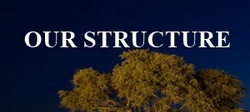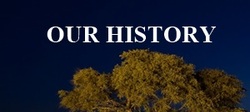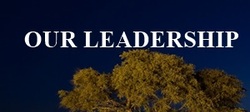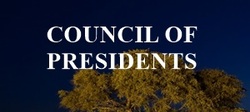The Igbo People
Igbo Community Association of Nigeria, DFW (ICAN) is an association which brings together persons and groups of persons who are Igbo by birth, marriage, naturalization or adoption, within a Metroplex or geographical area. Our purpose is to promote and maintain Igbo heritage while enhancing a smooth cultural infusion in recognition of other cultures. Membership is open to all Igbo organizations in the geographical area as defined in our constitution.
|
The Igbo people are a nation caught inside of southeastern Nigeria. They speak Igbo, which includes various Igbo id languages and dialects. Igbo people are one of the largest ethnic groups in Africa.
In rural areas of Nigeria, Igbo people are mostly craftsmen, farmers and traders. The most important crop is the yam; celebrations are held annually to celebrate its harvesting. Other staple crops include cassava and taro. Before British colonialism, the Igbo were a politically fragmented group. There were variations in culture such as in art styles, attire and religious practices. Various subgroups were organized by clan, lineage, village affiliation, and dialect. There were not many centralized chiefdoms, hereditary aristocracy, or kingship customs except in kingdoms such as those of the Nri, Arochukwu, Agbor and Onitsha. This political system changed significantly under British colonialism in the 19th century; Eze (kings) were introduced into most local communities by Frederick Lugardas "Warrant Chiefs". The Igbo became overwhelmingly Christian under colonization. Chinua Achebe's Things Fall Apart is one of the most popular novels to depict Igbo culture and changes under colonialism. By the mid-20th century, the Igbo people developed a strong sense of ethnic identity. Certain conflicts with other Nigerian ethnicities led to the Igbo-dominant Eastern Nigeria seceding from Nigeria to create the independent state of Biafra. The Nigerian-Biafran war (6 July 1967 – 15 January 1970) broke out shortly after. With their defeat, the Republic of Biafra was reabsorbed into Nigeria. MASSOB, a sectarian organization formed in 1999, continues a non-violent struggle for an independent Igbo state. Due to the effects of migration and the Atlantic slave trade, there are descendant ethnic Igbo populations in countries such as Cameroon and Equatorial Guinea, as well as outside Africa. Their exact population outside Africa is unknown, but today many African Americans and Afro Caribbeans are of Igbo descent. According to Liberian historians, the fifth president of that country, Edward James Roye, was of "pure" Igbo descent. The Igbo people have had heavily fragmented and politically independent communities. Before knowledge of Europeans and full exposure to other neighbouring ethnic groups, the Igbo did not have a strong identity as one people. As in the case of most ethnic groups, the British and fellow Europeans identified the Igbo as a tribe. Chinua Achebe, among other scholars, challenged this because of its negative connotations and possible wrong definition. He suggested defining the Igbo people as a nation similar to the Cherokee Native Americans or Japanese, although the Igbo do not have an officially recognized physical state of their own. Due to the effects of migration and the Atlantic slave trade, there are descendant historical Igbo populations in countries such as Cameroon and Equatorial Guinea, as well as outside Africa; many African Americans and Afro Caribbeans are assumed to be partially of Igbo descent. Throughout historic text Igbo people have been more commonly referred to as either Iboe, Ebo(e), Eboans, or Heebo, in addition their land has been referred to as the Eboe Country. Origin: Pottery dated at around 4500 BCE showing similarities with later Igbo work was found at Nsukka, along with pottery and tools at nearby Ibagwa; the traditions of the Umueri clan have as their source the Anambra valley. In the 1970s the Owerri, Okigwe, Orlu, Awgu, Udi and Awka divisions were determined to constitute "an Igbo heartland" from the linguistic and cultural evidence. |
January 21, 2017
ICAN Meeting Time: 5PM Location Igbo Center 2425 Gus Thomasson Road Mesquite, Texas 75150 March 18, 2017 ICAN Meeting Time: 5PM Location Igbo Center 2425 Gus Thomasson Road Mesquite, Texas 75150 May 20, 2017 ICAN Meeting Time: 5PM Location Igbo Center 2425 Gus Thomasson Road Mesquite, Texas 75150 July 15, 2017 ICAN Meeting Time: 5PM Location Igbo Center 2425 Gus Thomasson Road Mesquite, Texas 75150 September 16, 2017 ICAN Meeting Time: 5PM Location Igbo Center 2425 Gus Thomasson Road Mesquite, Texas 75150 November 18, 2017 ICAN Meeting Time: 5PM Location Igbo Center 2425 Gus Thomasson Road Mesquite, Texas 75150 |







